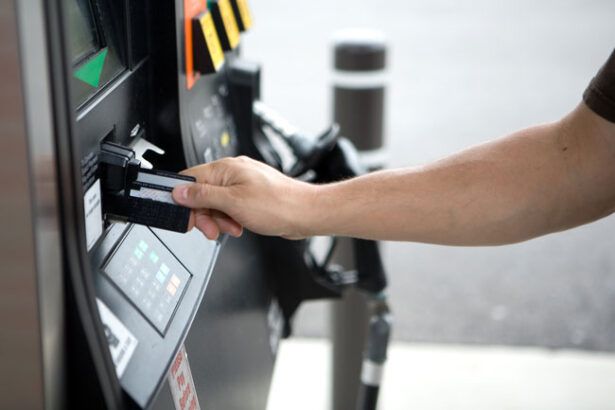
Successful fleet management is about efficiency and control. There are many tools a fleet manager or business owner can use to simplify tasks and streamline operations. One of the most used of these tools (and most versatile) is a fleet card.
When drivers are aware their transactions are monitored in real time, they are more likely to have responsible spending behaviors and less likely to misuse their cards.
Fleet fuel cards are equipped with real-time data capabilities. With up-to-date information, fleet managers can do so much more. When used appropriately, fleet card data can lead to improvements in many areas including:
- Cost control
- Fuel management
- Compliance
- Administration
- Security
- Reporting
- Operational efficiency
Before we explore each benefit, let’s examine fleet cards and how real-time data is collected and stored.
The Function of Fleet Cards and Real-time Data
Many fleet managers use fleet cards as payment methods for expenses related to fueling and maintaining fleet vehicles. These cards function similarly to credit cards but have several features that make them a much better option. For starters, most fleet fuel cards include fuel rebates. Some, like Valero Fleet Cards, include discounts on hotels, tires and auto parts. All fleet cards include purchase controls and reporting features that a credit card does not provide — and these business gas cards all capture transaction data as purchases happen.
When a driver makes a purchase with a fleet card, the transaction details are recorded and sent to a fleet card dashboard. The information includes:
- Date and time
- Location
- Fuel type (gas vs. diesel)
- Fuel grade (regular vs. premium)
- Mileage
- Driver ID
With access to this data, a fleet manager or business owner can transform many aspects of managing a fleet of vehicles.
Enhancing Fleet Management with Real-time Data
Let’s look at seven ways real-time data can benefit fleet management.
Enhanced Cost Control
Real-time fleet card data is incredibly helpful for controlling costs. Fleet managers can gain insight into their spending patterns by monitoring transactions as they occur. They can identify excessive spending, unauthorized purchases and potential instances of fraud in real time.
With fleet cards, fleet managers can also set spending limits and restrictions on fuel types or purchase locations. Combining purchase controls with real-time info is a great way to put clear boundaries on spending.
Improved Fuel Management
Fuel management and cost control are directly connected; however, since fuel is one of, if not the largest, line items in a fleet-dependent business’s budget, it helps to view managing fuel as a separate task.
Real-time fleet card data provides visibility into fuel consumption patterns. Trends can be viewed as driver-specific, vehicle-specific or fleet-wide. With these insights, fleet managers are able to identify fuel inefficiencies as they unfold because all data points are accurate and up-to-date.
A manager can pinpoint vehicles with abnormal fuel consumption rates, which may indicate a potential maintenance issue or driver behavior problem. Real-time data also empowers fleet managers to plan more efficient routes.
Improved Compliance and Accountability

Compliance with company policies and accountability among employees is critical for managing fleets efficiently. Monitoring transactions in real time helps fleet managers enforce adherence to spending policies. Each transaction is linked to a specific employee and vehicle, creating a transparent accountability framework. When drivers are aware their transactions are monitored in real time, they are more likely to have responsible spending behaviors and less likely to misuse their cards.
Streamlined Administrative Processes
With every data point associated with tracking fuel captured and logged, there’s no need to collect receipts or submit expense reports.
Fleet management involves many administrative tasks, including tracking fuel expenses, reconciling receipts and processing expense reports. Real-time fleet card automates fuel expense tracking. With every data point associated with tracking fuel captured and logged, there’s no need to collect receipts or submit expense reports.
With credit cards, you must wait for a monthly statement for reconciliation, and using cash can lead to many entry errors. Fleet cards give you accurate and current information.
To make your administrative tasks even easier, most fleet card dashboards seamlessly communicate with bookkeeping and accounting software.
Enhanced Security and Fraud Prevention
Real-time fuel card data acts as an additional security measure and reduces the risk of fraud. By monitoring transactions in real time, fleet managers can swiftly detect suspicious activities or irregularities, such as unusual purchases, off-route locations, or excessive spending. Managers can even set up alerts to flag potential fraud.
Detailed Reporting and Analysis
A fleet fuel card is equipped with some powerful reporting tools. Fleet managers can run these reports from the fleet card dashboard. Some standard reports include:
- Fuel usage reports: view how much fuel is being used by a driver or vehicle.
- Vehicle usage: view how much time a vehicle is spending in the field.
- Monthly transaction summaries: view the total amount of fuel purchased, average price per gallon, federal taxes, state taxes, etc.
In addition to these basic reports, fleet managers can create customized reports based on the date range and data points they want to view. These reports include data analytics, making them invaluable for identifying cost-saving opportunities and for making strategic decisions that align with long-term business goals.
When you consider these reports can be run with current data, fleet cards become even more valuable to fleet management.
Enhanced Operational Efficiency
Each of the previously mentioned benefits combine to make for increased operational efficiency. With so much data immediately available and usable, managers can quickly address issues as they happen. They can also ensure resources are used effectively and efficiently.
With each positive shift in operational efficiency, a fleet realizes increased cash flow.
With Real-time Data, You Can Run a Better Fleet
Leveraging real-time insights based on fleet card data helps fleet managers make informed decisions. With this information, they can boost operational efficiency and reduce risks like excessive spending and fraud.
For fleet managers and business owners looking for tools to improve fleet management, there is one place everyone should start—and that’s with a fleet card.